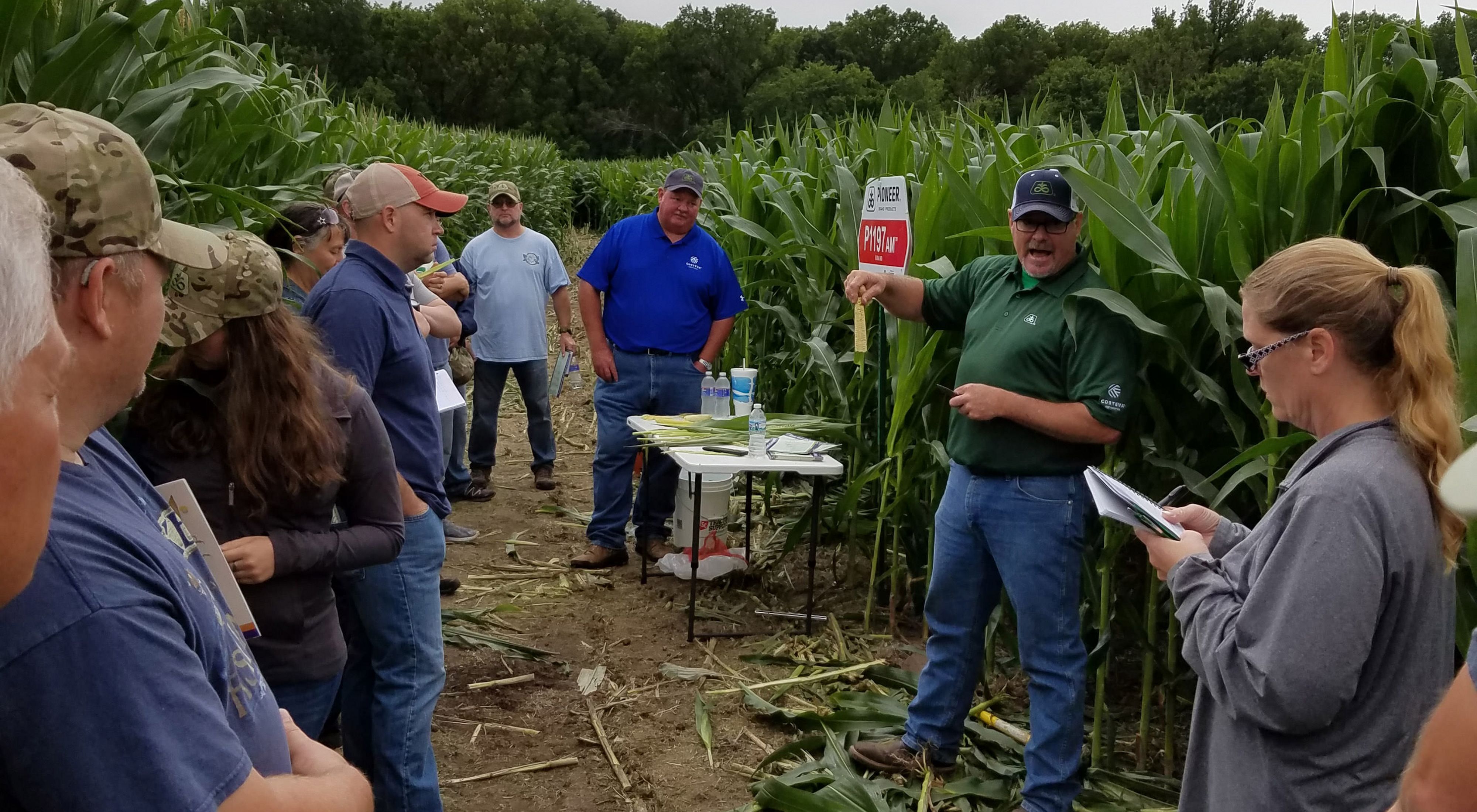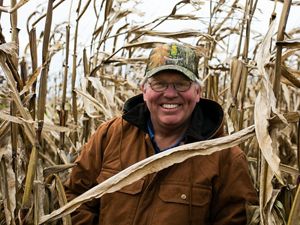Veterans’ Next Mission: Sustainable Agriculture
SAVE Farm and TNC are training veterans for a vital new mission: sustainable agriculture.
Dr. Hannah Birgé walked into a farmers’ market in Manhattan, Kansas, and walked out with a bottle of honey—and a dream for a new partnership to transform agriculture.
Birgé, The Nature Conservancy’s director of water and agriculture in Nebraska, works to find innovative ways to advance TNC’s priority to provide food and water sustainably. Her work has included advancing precision irrigation and soil health programs with farmers.
She learned about a fledgling nonprofit called SAVE Farm, which stands for Servicemember Agricultural Vocation Education. Located northwest of Manhattan, Kansas, SAVE is a nonprofit teaching farm where military veterans learn about managing cropland, livestock animals, orchards, horticulture, and beekeeping.
Quote: Jake Davis
This project gives us a way to give back to those who have sacrificed so much for us.
SAVE is specially designed to help veterans with disabilities work with equipment and animals. Upon completion of training, transitioning servicemembers and veterans will be matched with mentor farmers and will be given the opportunity to work on, manage or own a farm. The effort is in the beginning stages, and the farm will ultimately train 100 veterans and service members annually through an entire farm cycle.
Birgé thought about a future in which veterans-turned farmers using best conservation practices. “Things like no-till, cover crops, diversification, grazing for wildlife, managing for pollinators… they aren’t an afterthought, but rather ‘baked in’ to how the curriculum at SAVE teaches farming,” says Birgé.
“It’s SAVE’s hope, and our hope, that this model will be replicated in all land grant universities,” says Birgé.
The partnership with SAVE and TNC promises to be a win for conservation, a win for vets, and a win for family farms. A gap exists between the need for new farmers in our country and available people interested in farming. The average age of farmers in the U.S. is approaching 60, with 40 percent over 65. Succession planning is critical in the country's farming future.
TNC has helped by providing grant support for SAVE Farm to buy no-till and cover crop equipment. TNC’s NatureVest division is also assisting with creative financing mechanisms to get SAVE graduates onto their own farms. In March 2020, SAVE was able to purchase the 308-acre farm they had been leasing thanks to low-cost loans from TNC and The Conservation Fund.
NatureVest’s Jake Davis, a U.S. Army veteran, says the project has special meaning for him because “it gives us a way to give back to those who have sacrificed so much for us.” The video on this page (funded in part by a 2018 Bridge Spark Challenge grant) describes the partnership in more detail.

“As a nation, we decided it was a priority to put these men and women in harm’s way. Now we have a chance make it a priority to remove barriers to successful transitions for them, while we create good outcomes for retiring farmers - and lasting conservation value,” said Jill Wells, writer and co-lead for the Conservancy’s Veterans In Nature’s Service employee group. “It’s incredibly exciting.”
When Hannah Birgé walks out of a farmers' market again, she's content knowing that her jar of honey came from bees and veterans who've learned sustainable ways to farm.



